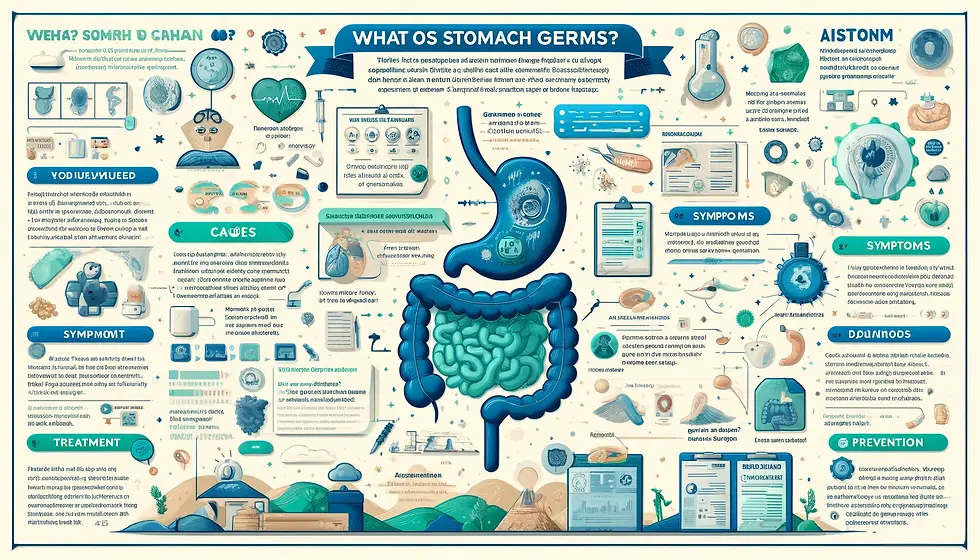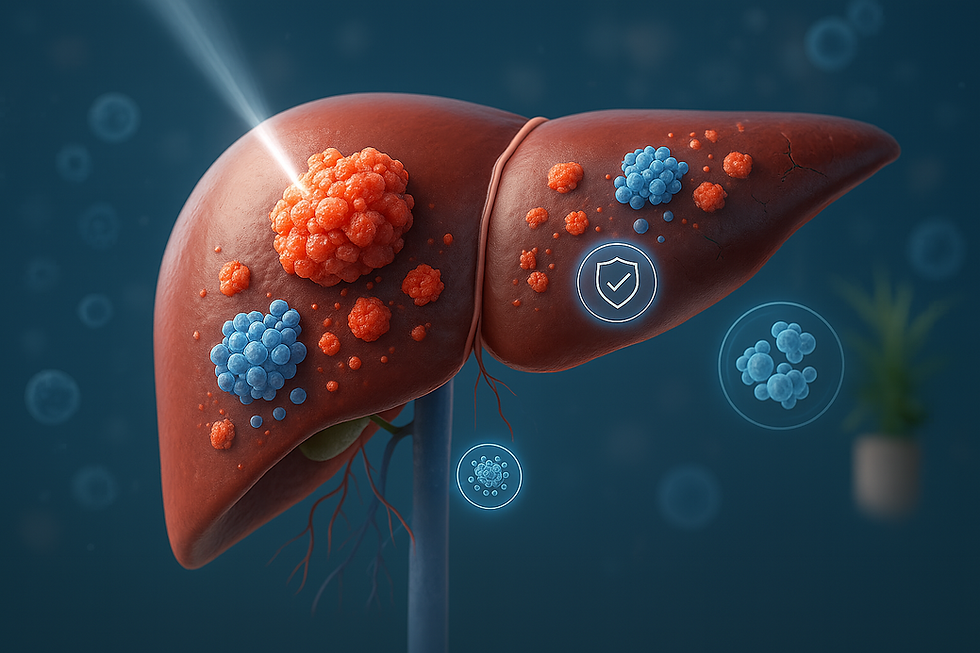Understanding Stomach Germs Types, Causes, Symptoms, Diagnosis,Treatment, and Prevention
- Doctoury

- May 24, 2024
- 2 min read
Stomach Germs Causes Symptoms Diagnosis and Treatment
Stomach germs, often known as gastric bacteria, are microorganisms found in the digestive tract that can affect gut health. While some bacteria are beneficial, others can lead to infections and diseases. This blog post will explore the various types of stomach germs, their causes, symptoms, how they are diagnosed, treatment options, and preventive measures
Stomach germs refer to the bacteria that reside in the stomach and intestines. These germs can range from harmless commensals, which aid in digestion, to pathogenic bacteria that cause disease.

Helicobacter pylori (H. pylori): The most common pathogenic bacterium that can lead to ulcers and stomach cancer.
Escherichia coli (E. coli): Certain strains can cause severe food poisoning.
Salmonella: A group of bacteria that can cause gastrointestinal distress and fever.
Clostridium difficile (C. diff): Known for causing severe diarrhea and colitis, particularly after antibiotic use.
Stomach germ infections can be caused by:
Contaminated food or water: Poor hygiene in food preparation.
Close contact with infected individuals: Especially in places like hospitals or schools.
Use of antibiotics: Which can disrupt the normal balance of gut bacteria.
Symptoms vary depending on the germ but commonly include:
Nausea and vomiting
Diarrhea
Stomach pain and cramping
Fever and fatigue
Diagnosing a stomach germ infection involves:
Medical history and physical examination
Stool tests: To identify the specific bacteria causing the symptoms.
Breath tests: Particularly for detecting H. pylori infection.
Endoscopy: Used to observe the stomach lining and take tissue samples.
Treatment depends on the type of germ and severity of the infection:
Antibiotics: To target specific bacteria.
Probiotics: To restore the natural balance of gut bacteria.
Fluid replacement: To prevent dehydration from diarrhea.
Preventive measures include:
Proper hygiene: Regular hand washing, especially before eating and after using the restroom.
Safe food practices: Cooking meat thoroughly and washing fruits and vegetables.
Avoiding contaminated water: Using filtered or bottled water, particularly in areas with poor sanitation.
Understanding and managing stomach germs are crucial for maintaining good digestive health. By recognizing the symptoms and causes, seeking timely diagnosis and treatment, and practicing preventive measures, individuals can significantly reduce their risk of infection. Stay informed and proactive about your gastrointestinal health to lead a healthier life.




Comments